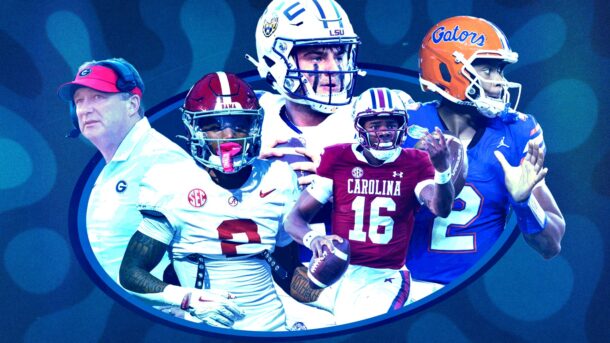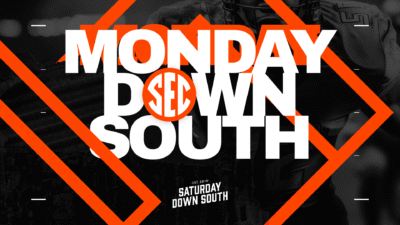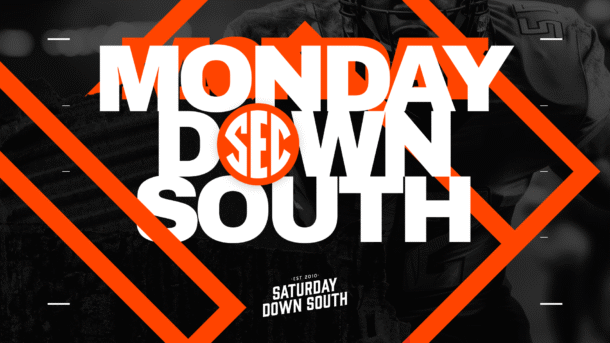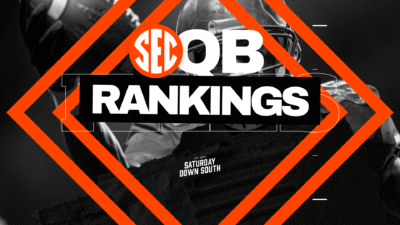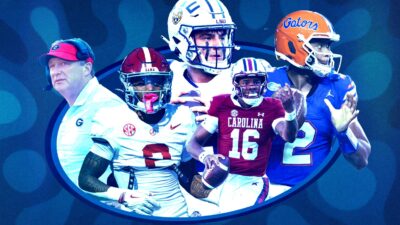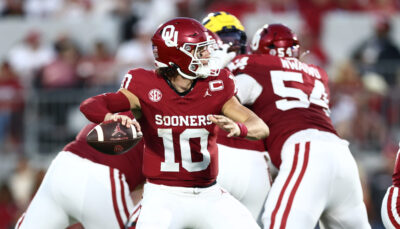
Want one piece of evidence that shows how big college football is in the SEC? Of the top 10 stadiums in the country that can fit the most of you, the fans, half of them are SEC stadiums.
Expanding on that, all but four of the teams in the conference have a stadium that ranks in the top 25 in capacity.
They say football is a religion down here, and if that’s true, then these are the cathedrals. Except, we come together on Saturdays instead of Sundays.
With that said, getting your hands on a ticket at one of these venues is more difficult in this conference than any other. However, which SEC fan bases have the hardest time getting their hands on tickets come game day?
In order to figure that out, we’ll first take a look at the capacities of all 14 SEC stadiums as this serves as a baseline of sorts. All factors aside — such as team success/failure, current excitement surrounding the program, etc. — more room means a greater probability of finding a ticket.
Here’s a ranking of all 14 SEC stadiums from largest to smallest in terms of capacity. Note that the rankings to the left of the school name are the national rankings for capacity (these numbers refer to the 2015 season and are according to the NCAA):
| School | Stadium | Capacity |
|---|---|---|
| 3. Texas A&M | Kyle Field | 106,300 |
| 4. Tennessee | Neyland Stadium | 102,455 |
| 6. LSU | Tiger Stadium | 102,321 |
| 7. Alabama | Bryant-Denny Stadium | 101,821 |
| 10. Georgia | Sanford Stadium | 92,746 |
| 12. Florida | Ben Hill Griffin Stadium | 88,548 |
| 13. Auburn | Jordan-Hare Stadium | 87,451 |
| 20. South Carolina | Williams-Brice Stadium | 80,250 |
| 22. Arkansas | D.W.R. Razorback Stadium | 72,000 |
| 23. Missouri | Faurot Field | 71,168 |
| 38. Mississippi State | Davis Wade Stadium | 61,337 |
| 39. Kentucky | Commonwealth Stadium | 61,000 |
| 42. Ole Miss | Vaught-Hemingway Stadium | 60,580 |
| 76. Vanderbilt | Vanderbilt Stadium | 40,350 |
The top four schools on that list hold at least 100,000. There’s only four other schools combined in the country that can fit that many.
There’s a couple differences from last season. First of all, Missouri increased its capacity in Columbia by almost 3,000 (2,819). Meanwhile, Kentucky actually saw a decrease of 6,606 due to a renovation.
I know what you’re thinking: Doesn’t a renovation usually result in an increased capacity? Well, Commonwealth Stadium did so in order to add 27 additional luxury suites (to bring stadium total to 67), loge and mezzanine seating as well as a recruiting room.
That reduction led to Mississippi State leapfrogging Kentucky in the rankings.
Still, what good is capacity if the fans aren’t taking advantage of it and rubbing elbows for three hours? Now we have to look at how frequently a stadium reaches capacity because that means fans are on the outside looking in.
Here we examine the average attendance numbers for all 14 SEC schools from last season and see how close on average each one comes to selling out on a weekly basis. Once again, national rankings are to the left of each school (these figures are also according to the NCAA):
| School | Stadium | Avg, Attendance | % Capacity |
|---|---|---|---|
| 10. Florida | Ben Hill Griffin Stadium | 90,065 | 101.7% |
| 12. Mississippi State | Davis Wade Stadium | 61,784 | 100.7% |
| 13. Kentucky | Commonwealth Stadium | 61,295 | 100.5% |
| T-15. Georgia | Sanford Stadium | 92,746 | 100.0% |
| T-15. Auburn | Jordan-Hare Stadium | 87,451 | 100.0% |
| 19. Ole Miss | Vaught-Hemingway Stadium | 60,479 | 99.8% |
| 23. Alabama | Bryant-Denny Stadium | 101,112 | 99.3% |
| 25. South Carolina | Williams-Brice Stadium | 78,822 | 98.2% |
| 26. Tennessee | Neyland Stadium | 100,584 | 98.2% |
| 27. Texas A&M | Kyle Field | 103,622 | 97.5% |
| 34. Arkansas | D.W.R. Razorback Stadium | 67,326 | 93.5% |
| 42. Missouri | Faurot Field | 65,120 | 91.5% |
| 45. LSU | Tiger Stadium | 93,441 | 91.3% |
| 65. Vanderbilt | Vanderbilt Stadium | 32,134 | 79.6% |
A few things immediately stand out. The Swamp got a big jolt of excitement this past season with the curiosity surrounding new coach Jim McElwain. Then, consider that the Gators won their first six home games, including early ones by way of a dramatic, come-from-behind win over Tennessee and a demolition of then-No. 3 Ole Miss in back-to-back weeks.
That resulted in Florida jumping from 10th to 1st in percent capacity. That’s also impressive considering Ben Hill Griffin Stadium ranks 12th in the nation in capacity as shown in the first table.
Ole Miss was ranked 1st last season but fell to 6th in the conference. Considering Alabama can house 40,633 more fans than Ole Miss can, and yet the Crimson Tide faithful nearly matched the Rebels’ capacity is noteworthy.
The two most impressive numbers from the above chart, at least in my opinion, belong to Florida and Georgia. That’s because of the five SEC schools to regularly sell out their home games last season (100 percent or more), the Gators and Bulldogs were the only two to also average 90,000-plus in attendance.
To add more perspective for the two rivals, consider that only 10 schools in the country had an average attendance of at least 90,000 last season. UF and UGA were two of only four schools to also have a percent capacity of at least 100 percent (the other two were Ohio State and Michigan).
Vanderbilt was on the other end of the spectrum. The Commodores were just shy of 80 percent capacity while every other school was 91 percent or better. That also comes despite having a stadium whose capacity ranks 65th in the nation.
Surprisingly, LSU was next-worst at 91.3 percent after recording 99.4 percent in the 2014 season.
However, let’s give it up for the SEC here. Half the teams in the league reached at least 99 percent capacity with regularity in 2015. The SEC is clearly home to the best football, and the best fans, in all the land.
Born and raised in Gainesville, Talal joined SDS in 2015 after spending 2 years in Bristol as an ESPN researcher. Previously, Talal worked at The Gainesville Sun.
